A couple of weeks ago I ventured out onto the North Sea on Ian’s Raider. I’d taken along some ragworm, with a view to tackling the numerous wrasse that live close inshore, whilst pollack and codling were also on the cards.
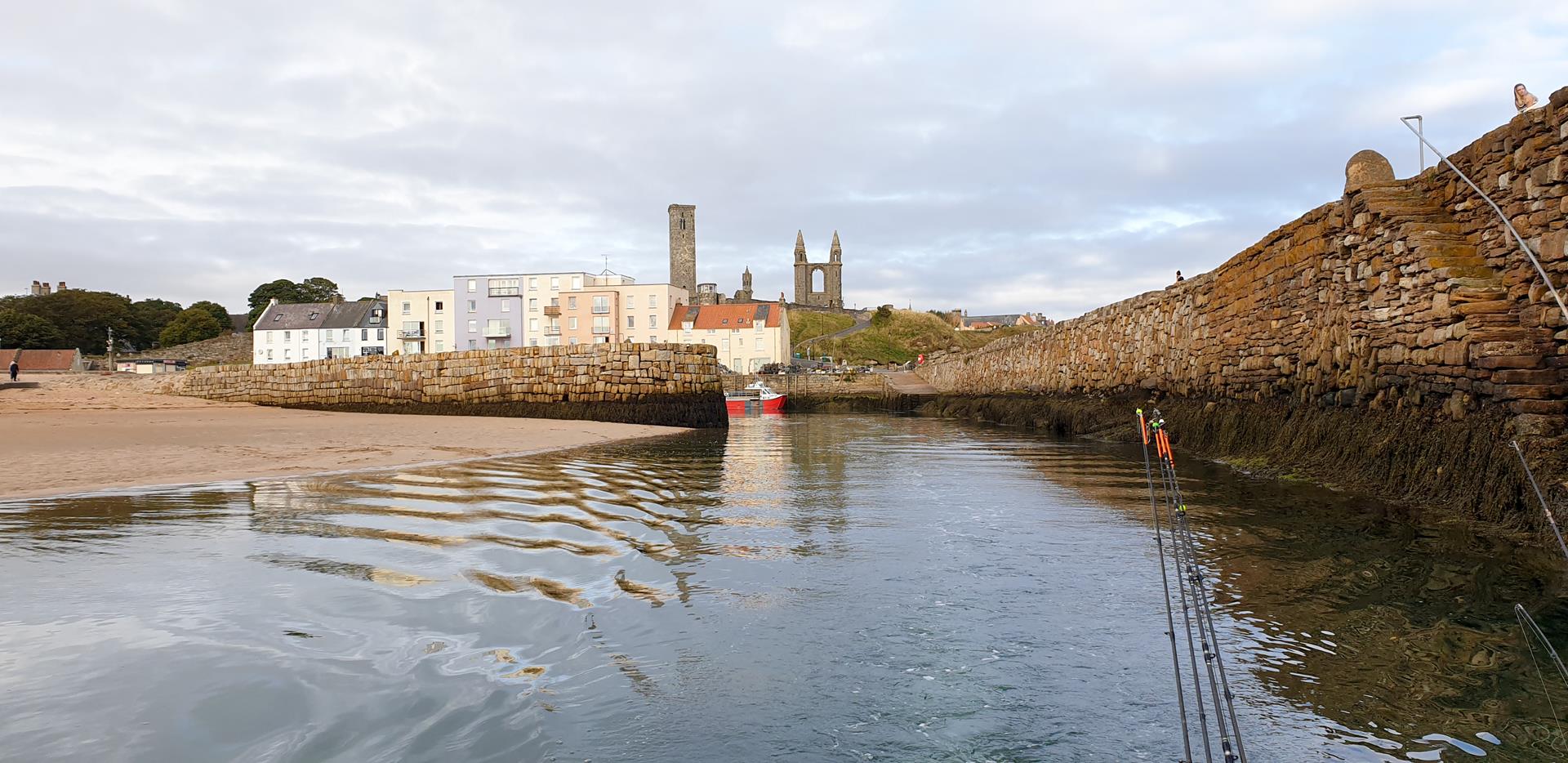
The sea was flat, one of those days where it’s hard to tell where the sea ends and the sky begins. A lovely day to be afloat, although not always perfect for inshore fishing on the east coast.
Nevertheless we made a good start, picking up mackerel for bait and following that up with a few pollack and codling.
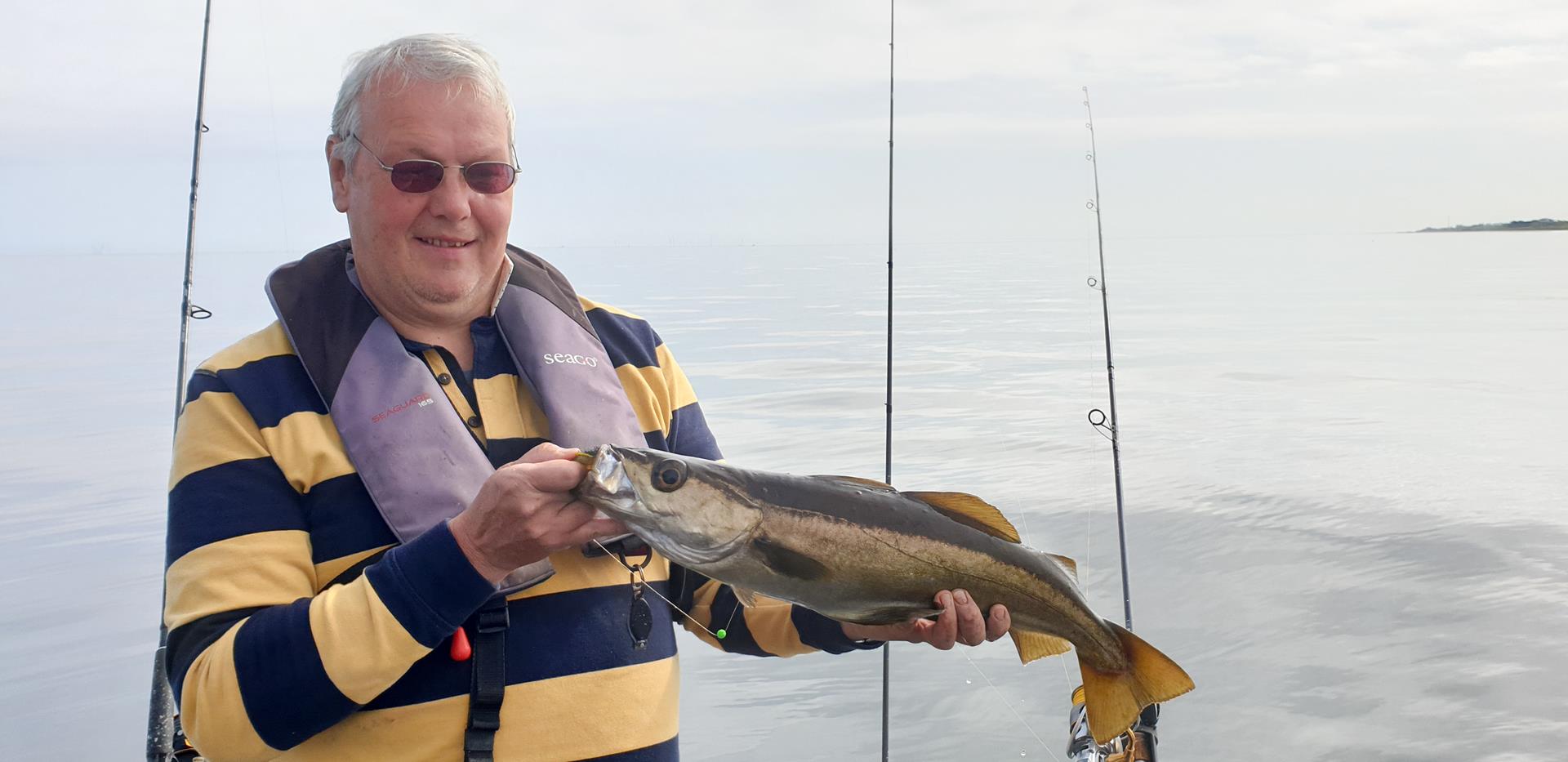
I latched into a nice plump codling of about 5lb 8oz and we caught steadily, if not spectacularly.
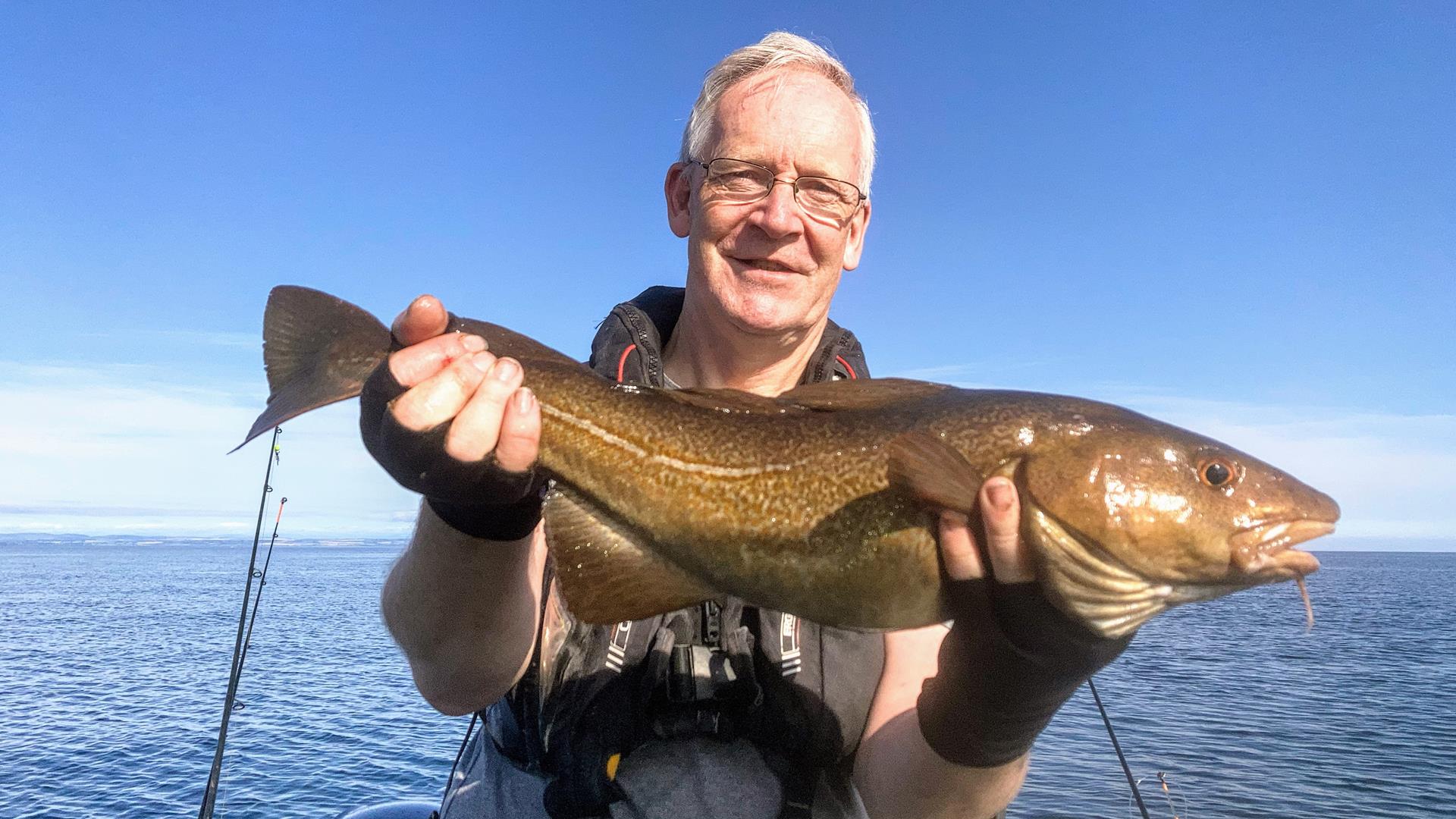
One of Ian’s codling coughed up this unfortunate dab, suggesting that these fish were roaming around a bit as they stocked up for winter.
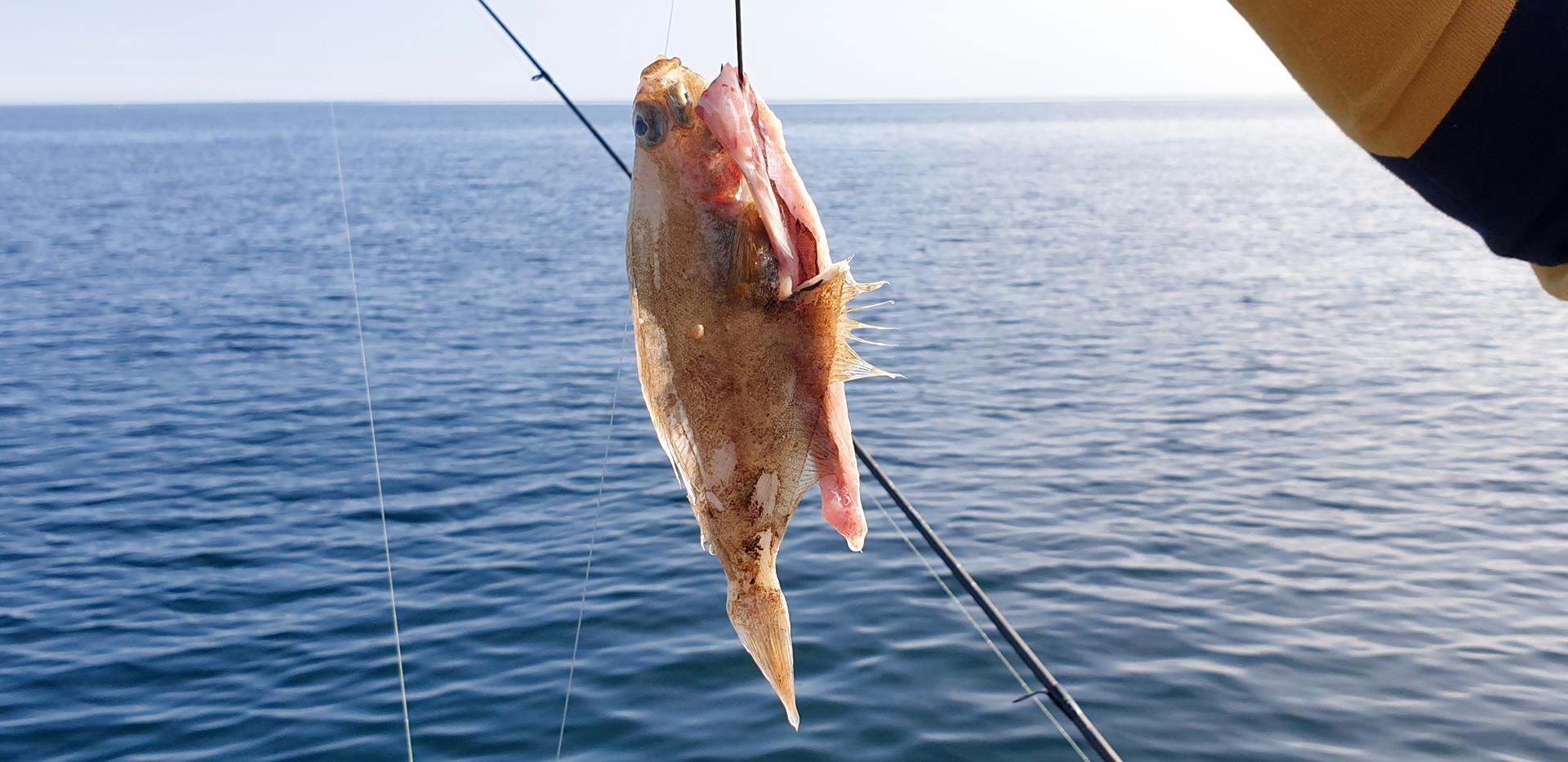
Settling down at anchor
Anchoring inshore we commenced attacking our chosen species – Ian with his pollack and me with the smaller (but cuter) wrasse.
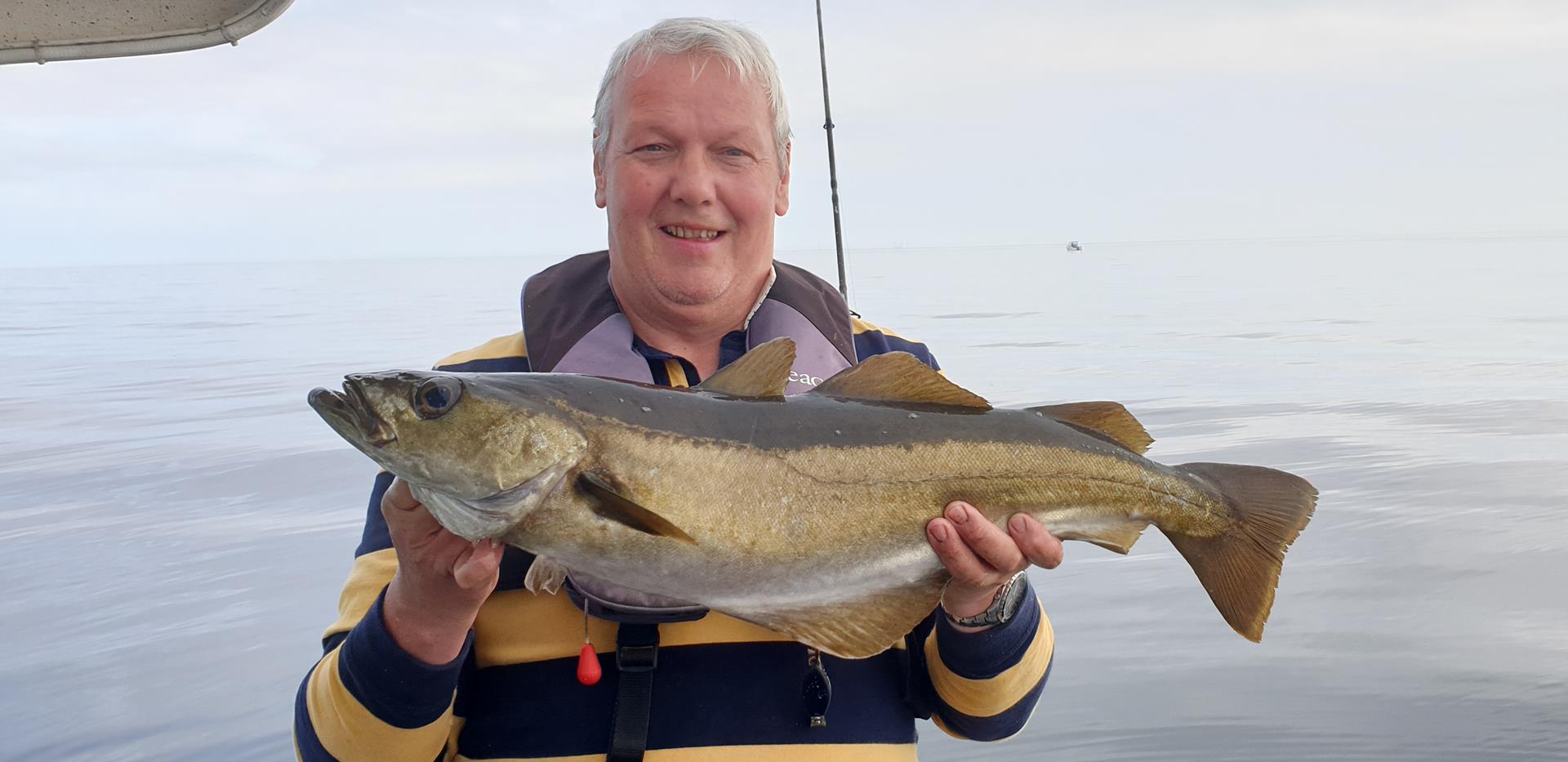
Both were around in numbers, so we were kept suitably busy.
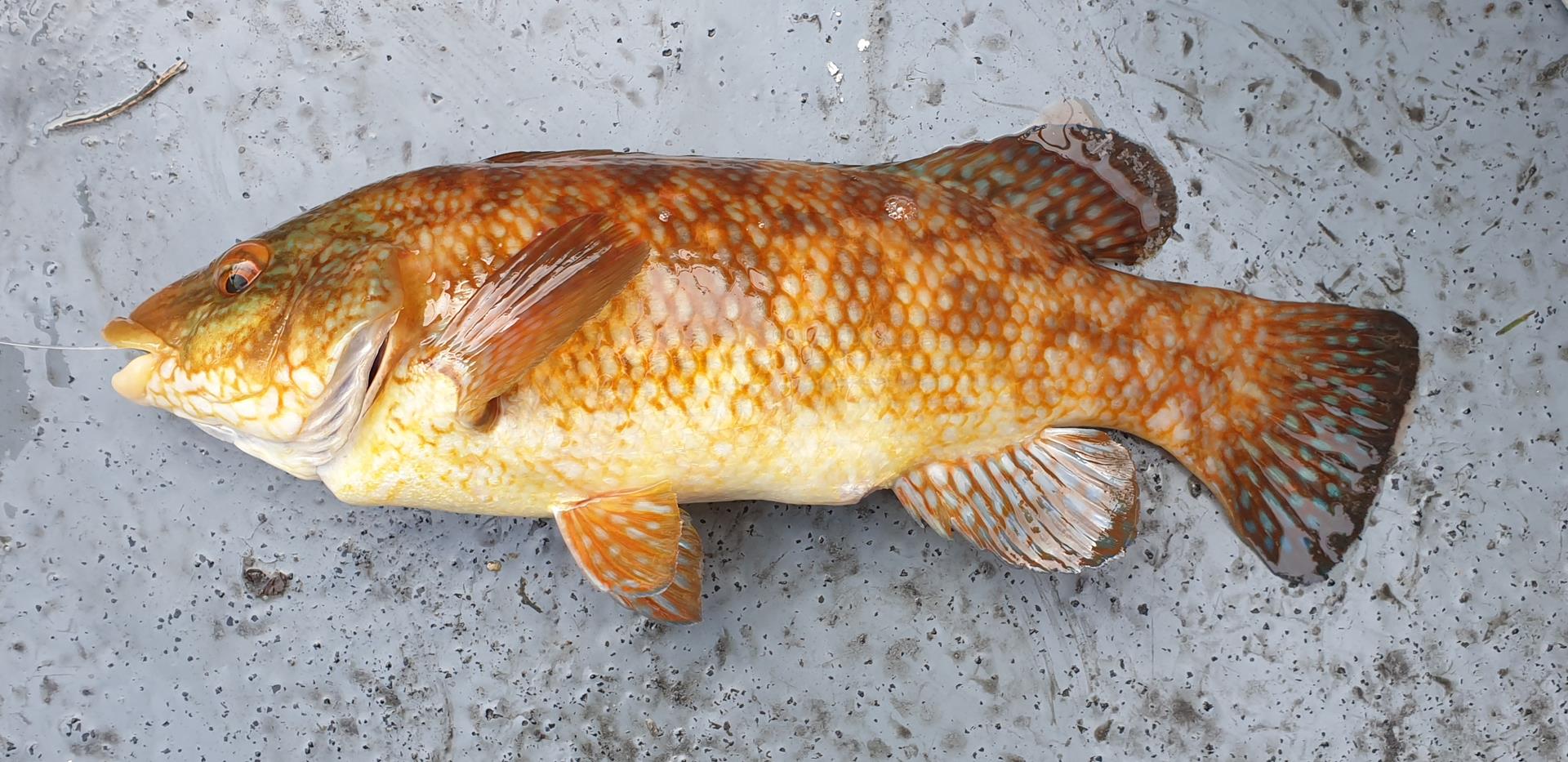
Ian’s fish were definitely larger, and I was tempted to ditch the wrasse when he pulled in his first 8lb+ specimen.
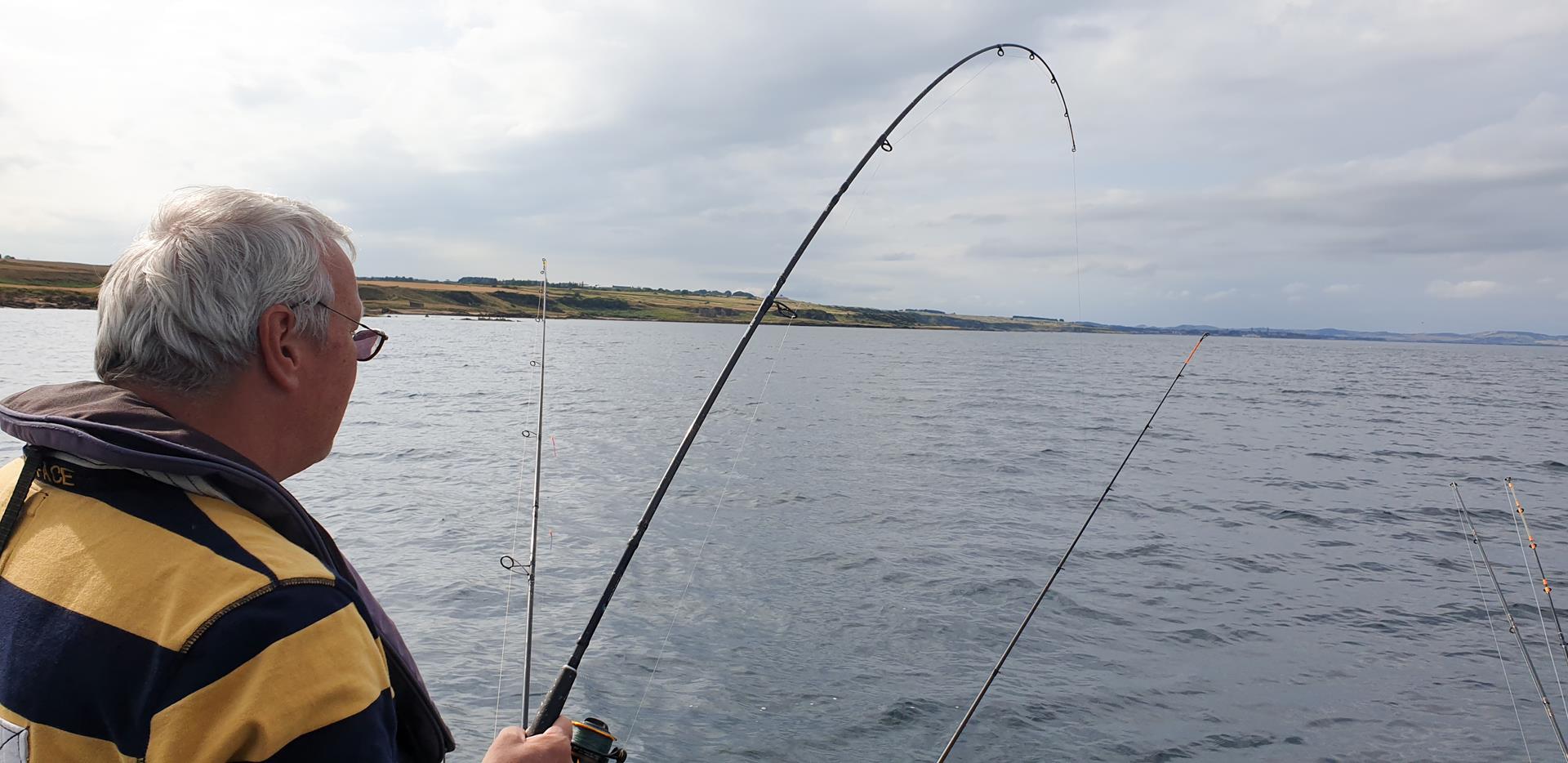
He followed that up later on with another – the best pollack of the day, at 8lb 10oz.
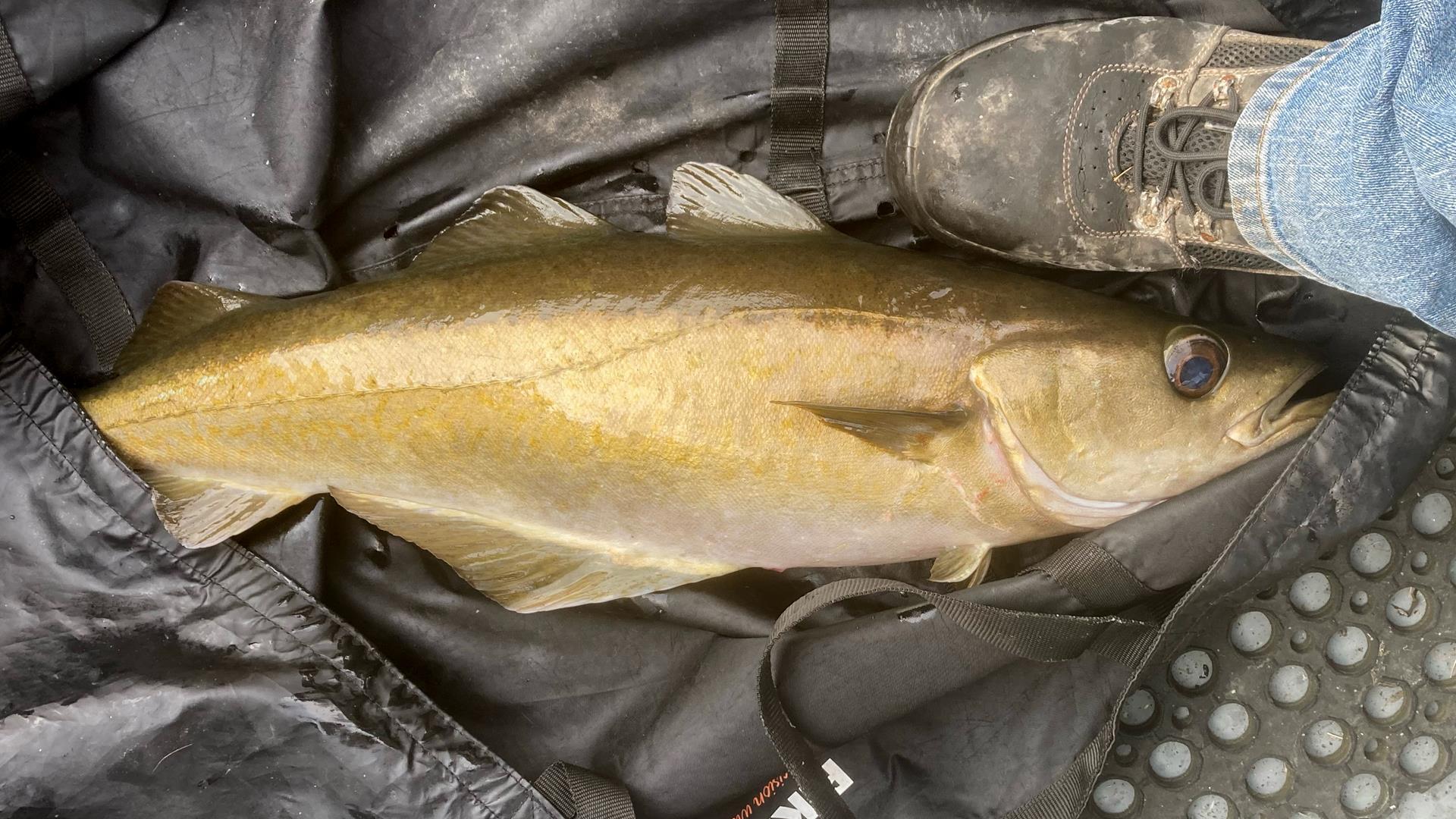
I stuck it out with my wrasse until I ran out of ragworm. None of them were large but they are very pretty fish and I like the odd session chasing them.

Inevitably the fishing slowed as we went through the day and we packed it in as the sky turned more leaden. In the event our timing was spot on, with a heavy shower just as we tied up, followed by another dry spell as we enjoyed a bacon roll at the harbour cafe.
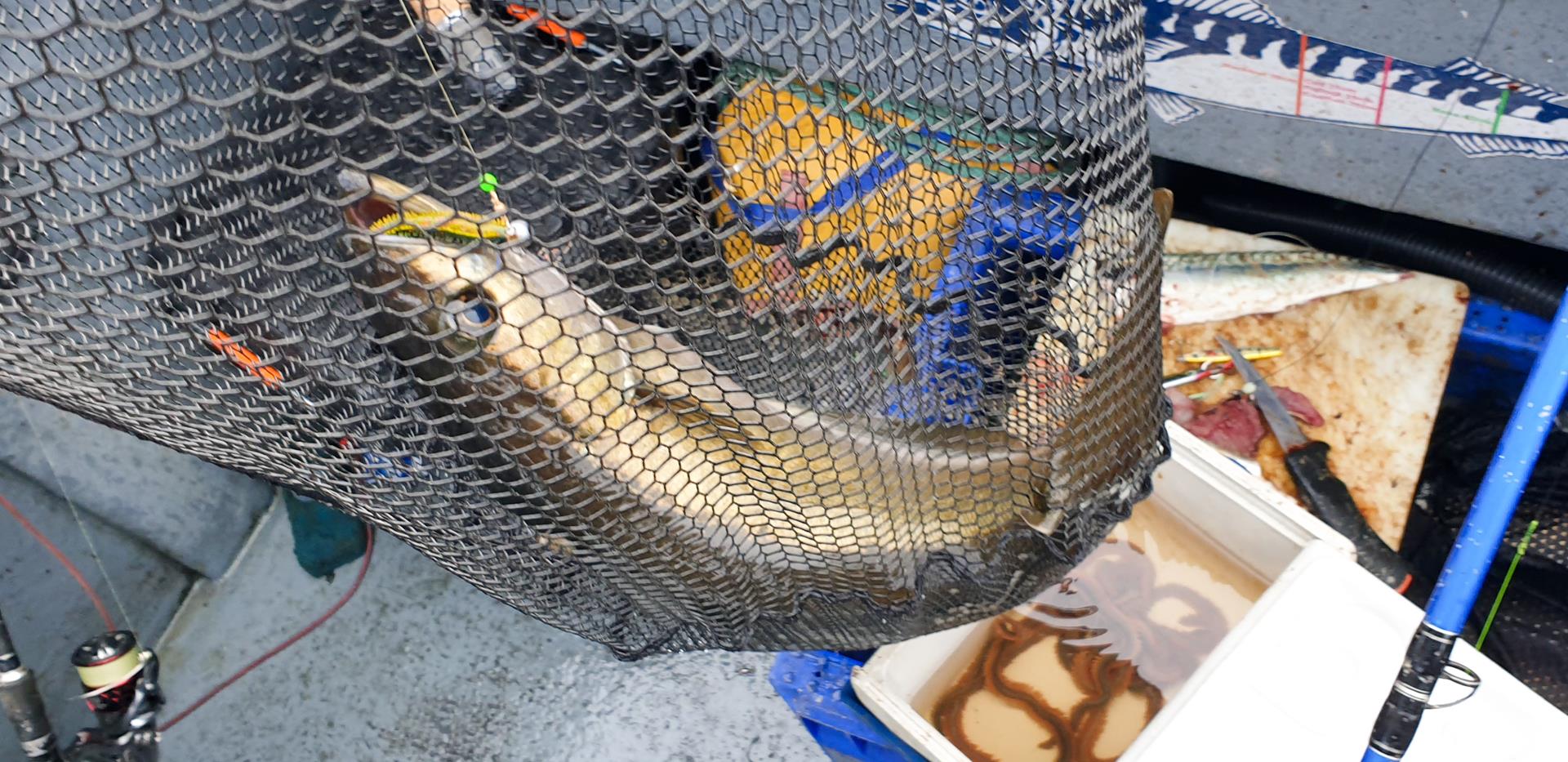
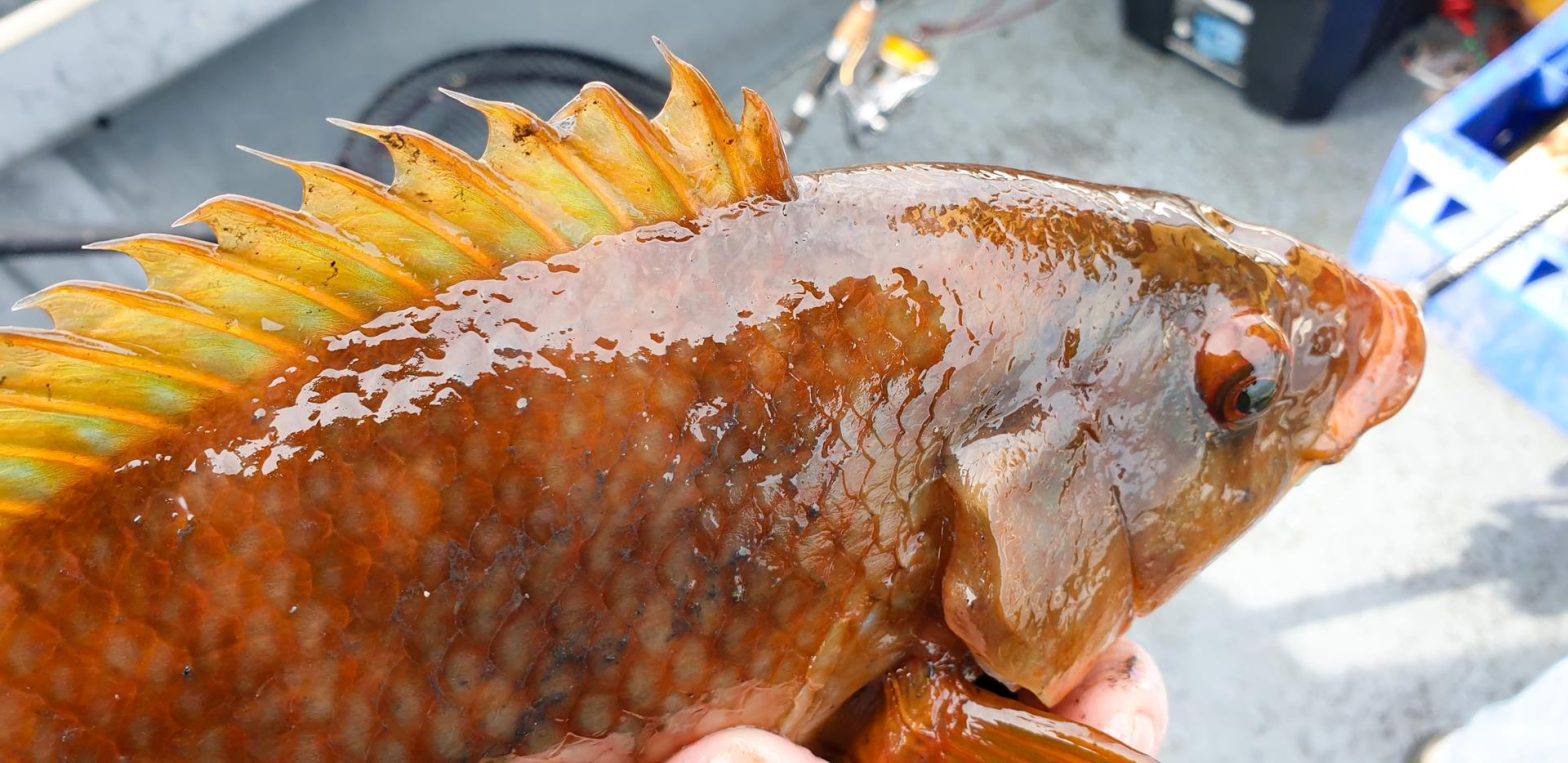
Targetted fishing, what next? Most of us chuck & hope, so well done for catching some great looking fish.
It was interesting to see how Ian and I gravitated in different directions on this trip. I like the occasional wrasse session and was more like “I’ve dug the bait so I’m going to use it”, whereas Ian is much more of a pollack guy and couldn’t resist once he realised they were there in numbers. Great that were enough of them that we really had to focus on one species or the other.